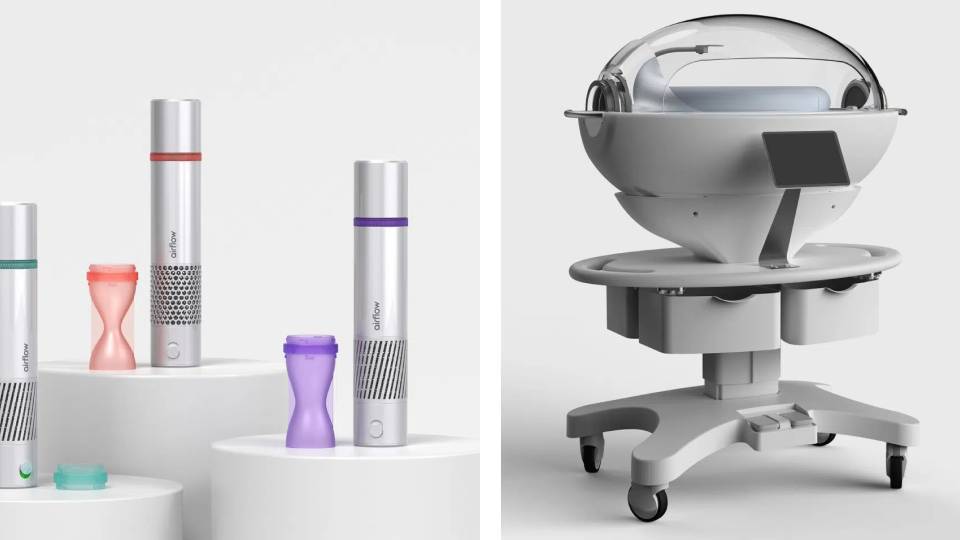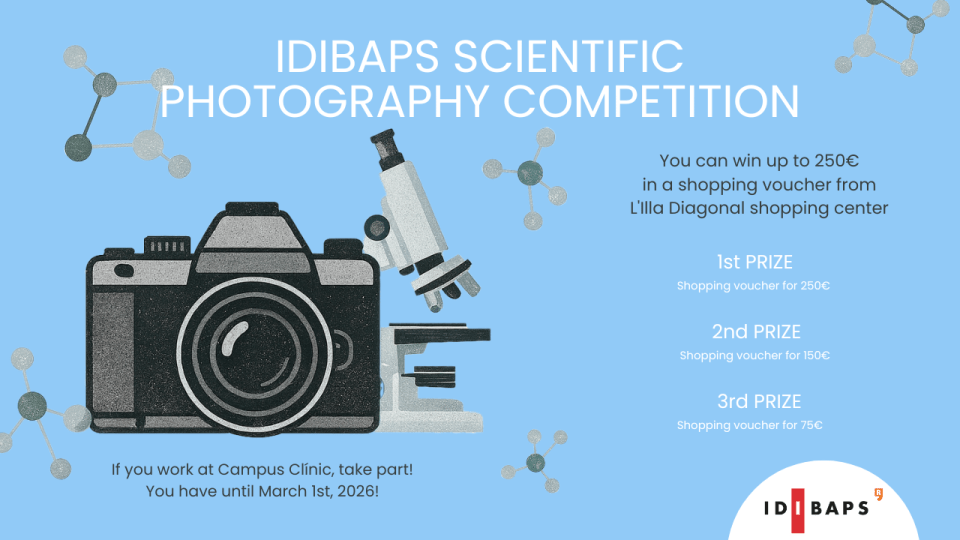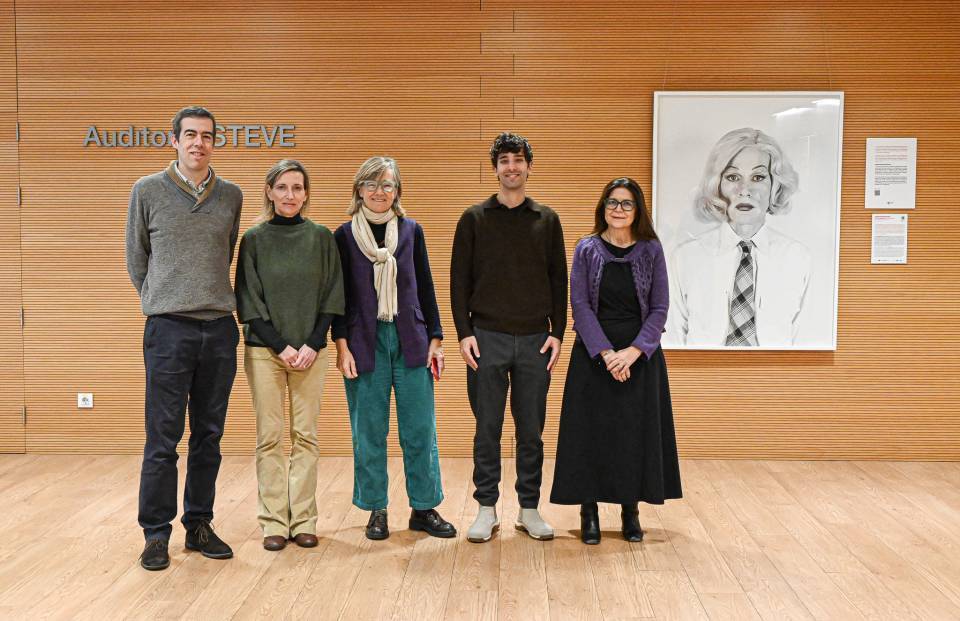The James Dyson Awards recognize the talent of engineering, product design and industrial design students. These awards highlight designs that seek to improve existing products that can be converted into improved versions. The jury assesses the students’ proposals, which begin with a national phase before reaching an international scale and considering the possible commercialization of the devices on the market. This year, the awards are looking for proposals that address sustainability issues or that have been manufactured in a sustainable manner.
At the Elisava School, the students have collaborated with professionals from the Hospital Clínic in identifying hospital devices whose function can be improved through design. These include incubators for premature babies, a spirometer that helps in pulmonary rehabilitation, a hydroalcoholic gel dispenser inspired by saline solution bags, a more ergonomic hospital bed, a virtual paediatric assistant, and a medical device that reduces noise inside incubators. The students have analysed the unmet needs in the hospital, which has allowed them to open up a research pathway for their projects.
These are the nominated projects
NEOSHELL BABY INCUBATOR
NeoShell is an incubator for newborn babies, with an oval shape that solves the issues of accessibility, cleanliness, opacity and safety of current incubators by means of a double dome system. These two domes are combined to provide regulatable opacities and adjustable windows with infinite possibilities to facilitate the work of healthcare staff. Moreover, the inclination prevents newborns from choking. The oval, electronically operated design also reduces noise.
Design students: Pau Padrós, Carmen Guerra Marroquín, Alex Bretaudeau, Miquel Clotet, David Riol Garcia, María Fernández, Marcel del Valle, Emma Brugué, Ainara Rico.
Elisava tutor: Xavi Riudor
Hospital Clínic tutors: Óscar García, Mario García, Núria Ruiz
Airflow is a spirometer that helps in the rehabilitation of patients’ lung capacity. The aim is for the user to recover the potential of their lungs through lung therapy. Thanks to a helix and an infrared detector, the volume and flow of air that the patient inhales through the tube are measured. The data collected are sent to the Airflow app and can be consulted easily by both the healthcare professional and the patient.
Design students: Mikel Smithers, Maiara Raisa Reisdorfer, Aitor Arkarazo, Germán Tomás Hernández Guerrero, Pablo Sacristan Neubauer.
Elisava tutors: Xavi Riudor, Salva Fàbregas
Hospital Clínic tutors: Mario García, Núria Ruiz
Splash is a hydroalcoholic gel dispenser inspired by the saline solution bags used in hospitals. The challenge was to create a universal holder for soap and hydroalcoholic solution, as a variety of bottles and holders are often used. Thus, it was decided to develop a bag, since it is the least limiting and most adaptable form. This design meets all the requirements of easy installation, proper cleaning and portability.
Design students: Guillem Ferrer Puiggrós, Pablo Frechilla Baños, Asier González de Zarate, Ignacia Mayorga, David Soto.
Elisava tutors: Xavi Riudor, Salva Fàbregas
Hospital Clínic tutors: Mario García, Núria Ruiz
2NDSKIN is a new healthcare product for bedridden patients who have difficulty going to the toilet. The current hospital bedpan is not very ergonomic and can cause ulcers or marks due to the rigid material. The proposed new design is based on the shape of the human body itself and is divided up into a solid inner part, made of PLA (polylactic acid) and the outer part, made of surgical silicone, a safe, skin-friendly material.
Design students: Marina Vera, Juan Leal, Oihane Ardanaz, Lucía Buño, Lidia Varona Piñas
Elisava tutors: Xavi Riudor, Salva Fàbregas
Hospital Clínic tutors: Mario García, Núria Ruiz
Vivo is a paediatric assistant that generates an atmosphere to improve the patient’s emotional well-being. It turns the patient’s room into a pleasant, fun and warm place. The device has a screen and a projector that rotates internally. It is also connected to an app with categories such as procedures and emotions to regulate the user’s circadian cycle and improve their well-being.
Design students: Luis Gabriel Forero, Julio Cesar Tellez Ruiz, Lorenzo Fanelli, Laura Görbitz Porcella, Zeus Romanillos Gràcia, Andrei Ivan Kriljenko Marquez.
Elisava tutors: Xavi Riudor, Salva Fàbregas
Hospital Clínic tutors: Mario García, Núria Ruiz
Neosine is a medical device that reduces noise inside incubators for newborn babies. By imitating the environment of the mother’s womb, this device prevents hearing deprivation of heartbeats, breathing or voices. It uses active sound cancellation through a loudspeaker that emits sounds from the parents. For greater accessibility, and to avoid renovating existing spaces, Neosine is a stand-alone, self-contained device that can be inserted or removed as desired.
Design students: David Riol Garcia
Elisava tutor: Xavi Riudor
Hospital Clínic tutors: Óscar García, Mario García, Núria Ruiz
On 13 September, the national winners and the finalists will be announced and, on 15 November, the international winner will be announced and the Sustainability Award will be presented.




